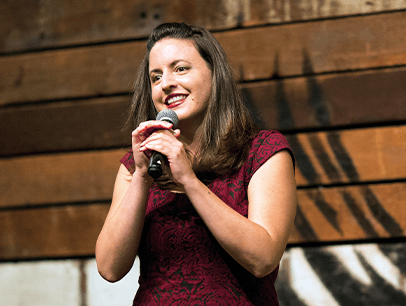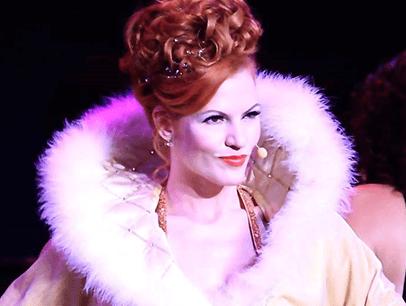
Growing up in Iran in the 1970s meant there were no opportunities for children and teenagers to speak publicly. However, as a child, I was privileged to find that opportunity in the Baha’i faith, where I developed my confidence as a speaker. As I reached the age where I should have been preparing to begin my university studies, I was faced with the realization that people of my faith were prevented from pursuing higher education. We were not considered a religion, but a subversive political sect. My choice was to leave my homeland.
I was 22 when my sister and I left our home country. We moved to Brazil because there was a large, dynamic Baha’i community there. The Baha’i community of Brazil offers some strong programs involving social economic activities and capacity building, and I had wanted to be engaged in these activities since my teenage years.
Moving to Brazil meant learning a new language—Portuguese. It was quite challenging. I grew up speaking Persian and because the two languages are so different, I had to learn to speak all over again. Once again, my voice felt silenced, although I learned enough of the language to be able to graduate from university, travel, and begin building a career.
I moved to the United States in 2004 after acquiring some English-speaking skills through university and at my job. I could communicate as a software developer working in information technology, but I knew my grammar wasn’t as good as it could be. In 2012, as I was leaving work one evening, I saw a flyer promoting a Toastmasters meeting. Without hesitation I attended and knew I had found a platform to help me get back to my old practice of public speaking! The grammarian’s feedback was especially helpful for me to improve my English-speaking skills. By participating fully in all that Toastmasters offers, I have also developed leadership and networking skills.
While my job does not provide many opportunities for using my Toastmasters skills, I do get to use them where my passion and heart lie: my volunteer work in the community. Toastmasters has taught me communication and leadership skills I can implement in many different areas, such as junior youth and teen programs, holy day celebrations, women’s programs, and other community outreach programs. For six years, until COVID hit, I organized monthly meetings and the annual celebration of International Women’s Day (March 8) at the Baha’i Center in Clearwater, Florida.
As I gave more speeches, I discovered my love of storytelling. I began working on my vocal variety skills, which added to the effectiveness of my stories and helped me to focus my passion. I hope to soon begin working with teenagers to help them create their own stories. I’ve learned that nothing helps develop confidence and self-esteem like telling your own story.
Toastmasters has taught me communication and leadership skills I can implement in my community.
Thanks to the confidence I have gained through speaking at my club and the valuable feedback from my evaluations, I have even begun performing monologues and dialogues from different plays in my community. I have then incorporated some of those techniques into my storytelling. And recently I performed in a one-woman play!
When I began Toastmasters, I was working in the traditional program, and I am now pursuing Pathways. I am continually finding opportunities to develop workshops and learn new practices. Through the years, I have served as Area Director, Club President, Vice President Membership, and Secretary, and in 2020, I received my DTM. I believe that if I can successfully perform these roles within Toastmasters, there is no reason I cannot run my own business of bringing my dreams to reality.



 Previous
Previous

 Previous Article
Previous Article

